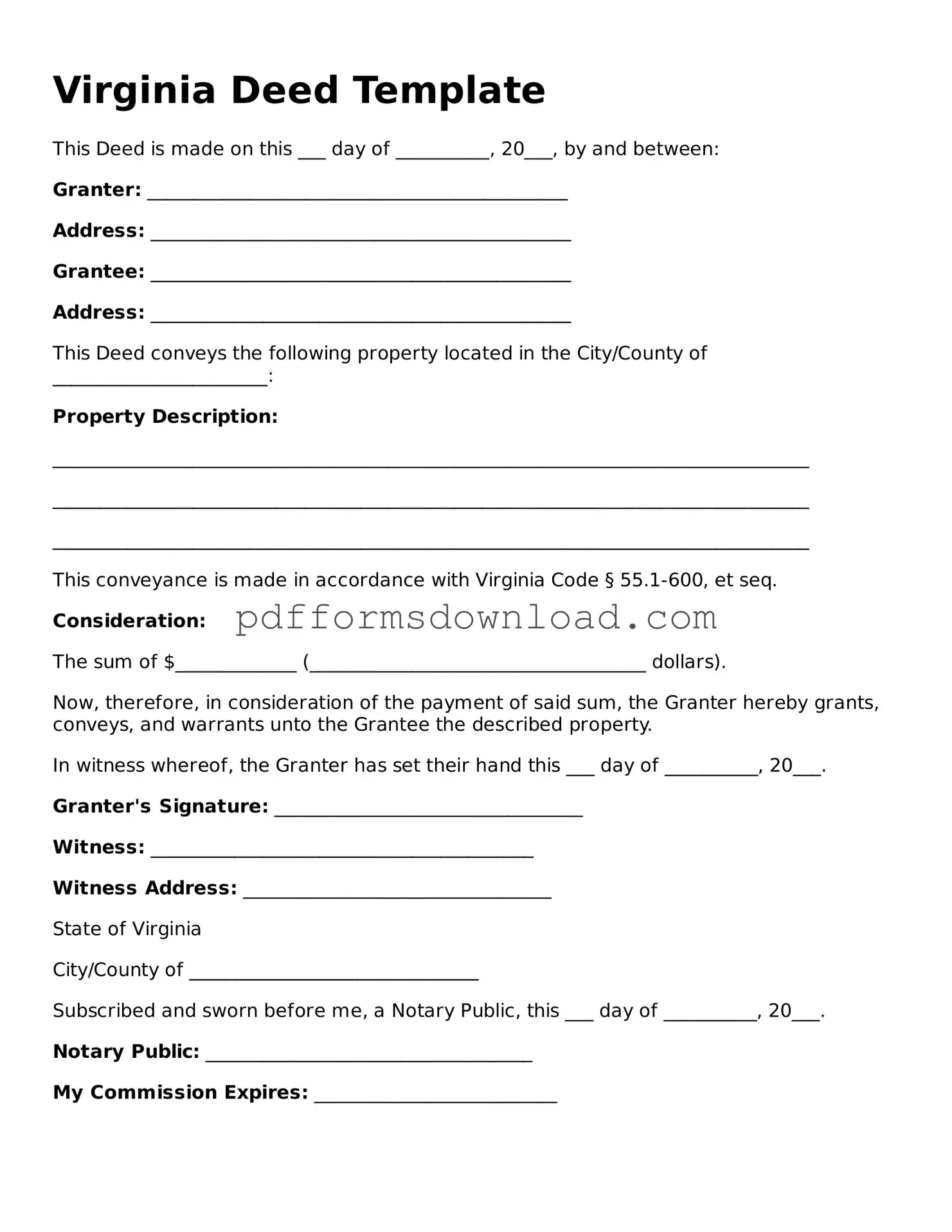Printable Virginia Deed Form
A Virginia Deed form is a legal document used to transfer ownership of real estate from one party to another. This form ensures that the transaction is recorded properly, providing a clear record of property ownership. To begin the process of transferring property, fill out the form by clicking the button below.
Make This Document Now

Printable Virginia Deed Form
Make This Document Now

Make This Document Now
or
Free PDF File
Your form is almost ready
Complete your Deed online — edit, save, and download easily.